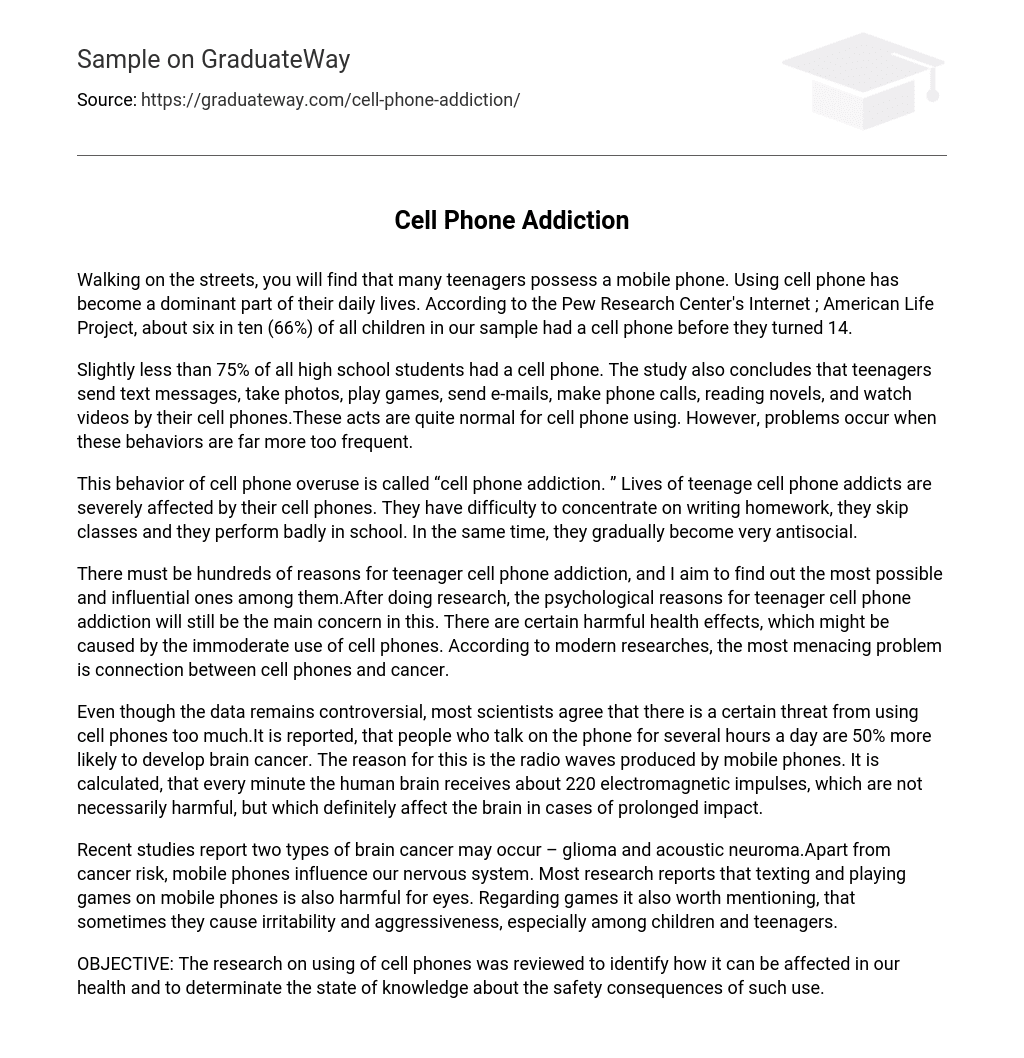According to the Pew Research Center’s Internet & American Life Project, about 66% of children in our sample had obtained a mobile phone before turning 14 years old, making it an essential component of their everyday lives as they walk on the streets.
Around 75% of high school students have and utilize a cell phone for various purposes, including texting, photography, gaming, emailing, calling, reading books, and watching videos. Although these activities are considered typical for cell phone usage, excessive engagement can lead to problems.
Excessive cell phone use, or cell phone addiction, greatly impacts teenagers. It hampers their ability to concentrate on schoolwork which results in skipping classes and performing poorly academically. Moreover, it causes a gradual decline in their social interactions and transforms them into more antisocial individuals.
My primary objective is to analyze various factors that contribute to teenage cell phone addiction. Based on my research, psychological reasons seem to be the main focus. Concerns have been raised through recent studies regarding the potential health consequences of excessive cell phone use, specifically the potential connection between cell phones and cancer.
Despite the controversial nature of the data, most scientists agree that excessive cell phone use carries a specific risk. It is claimed that people who spend several hours on phone calls each day are 50% more likely to develop brain cancer. This higher risk can be attributed to the radio waves emitted by mobile phones. The human brain is estimated to receive around 220 electromagnetic impulses per minute, which may not be inherently harmful but have a negative impact on the brain over extended periods of exposure.
Recent studies indicate that glioma and acoustic neuroma are two types of brain cancers that may develop. Additionally, mobile phones not only pose a cancer risk but also affect our nervous system. Several studies suggest that using mobile phones for texting and gaming can have negative effects on eyesight. Moreover, it is important to recognize that playing games on mobile phones may cause irritability and aggression, especially in young individuals like children and teenagers.
OBJECTIVE: This study aims to evaluate the research on cell phone usage to determine its effect on health and understand the existing understanding of safety risks related to their use.





